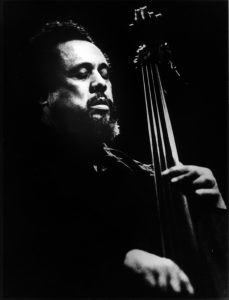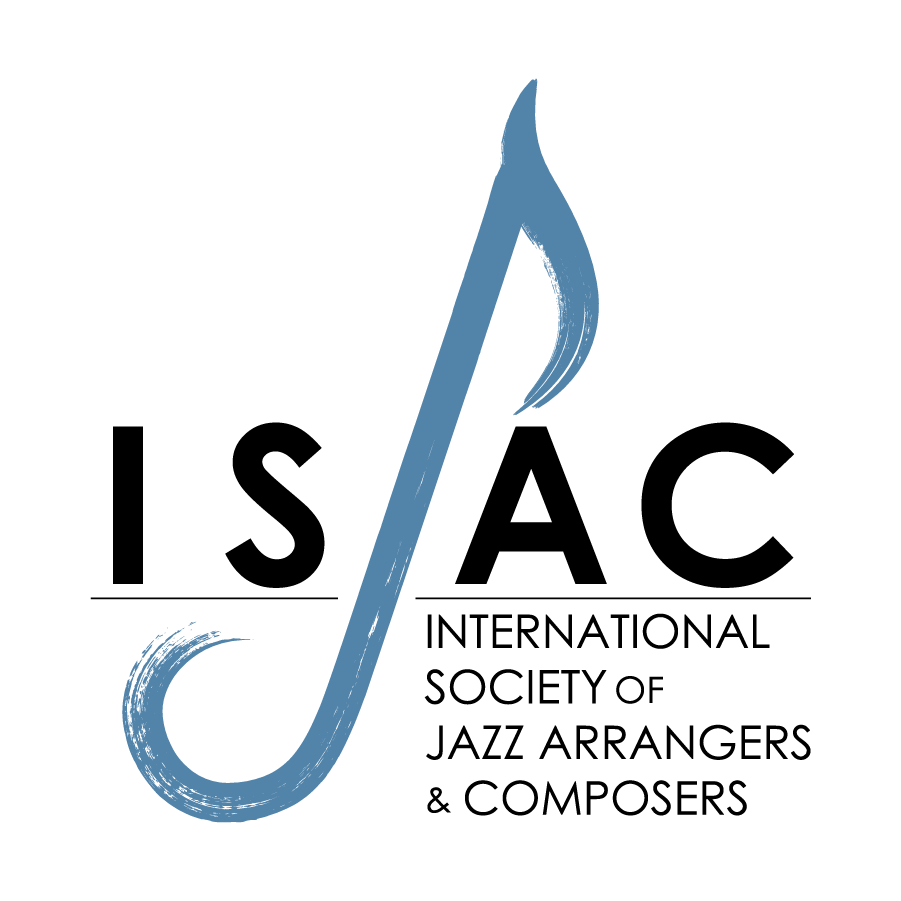
Charles Mingus, from Mingus archives (2.8M)
Mingus Among Us
Induction: 2021
Website: Charles Mingus Institute
Mingus Among Us (By Alex Foster)
January 28, 2021
Charles Mingus’ life was a hero’s journey, to say the least. This musical giant left us one of the richest catalogues in American Music. Born in Nogales, AZ, April 22, 1922, Mingus was born in a nation strictly divided by race, education, and just about any opportunity or advantage imaginable. Slavery was not such a distant memory at that time. In short, the cards were stacked against him and people of color in America.
Despite those odds, Mingus rose to be a musical innovator on his primary instrument, the double bass, as well as one of the most recognizable composers in American Music. He is still revered as a great band leader for his work over the four decades of his colorful career. From an early age, Mingus understood music in its entirety. This is evident in one of his early compositions, “Baby Take A Chance With Me,” which was written at age 17 and later performed with the Lionel Hampton Band. The struggle he was feeling is also evident in his composition, “Chill of Death” also written at age 17. Charles Mingus was an American Jazz musician whose compositions and arrangements crossed numerous boundaries from Swing to Boogie Woogie, from Bebop to Classical and the Avant Garde. Like Duke Ellington, Mingus was an innovator in the long form of jazz composition. Mingus defined himself through his compositions as well as commenting on society around him. That’s why we can, and we do wish to talk about him today.
In other words, his body of work is vast and in its entirety is a celebration. From “Haitian Fight Song” to “Boogie Stop Shuffle” to “Peggy’s Blue Sky Light” to “Children’s Hour of Dream,” Mingus’ music plays all the inner voices of life.
Sy Johnson, one of two of Mingus’s surviving arranging collaborators wrote:
“Charles Mingus first heard the sound of Duke Ellington over the radio when he was 8 years old and Duke remained a primary influence for the rest of his life. Without losing any of his own identity, Mingus succeeds in extending the thrust of Duke’s innovations – melody, mood, orchestration, rhythm, voicing, plunger brass and the way that his musicians responded to his direction.
“I could always hear everything Duke wrote”, Charles said. This is evident in his titles “Duke’s Choice”, “Duke Ellington’s Sound of Love”, and “Open Letter to Duke”.
Jack Walrath, who was the last trumpet player and arranger who worked with Mingus until Charles’ death on 5th of January,1979 also said: “Charles Mingus always kept up on the developments in all music, including pop, ethnic and ‘classical’ and used them to make his own individual composing and arranging statements. It might take many listenings to realize where his inspirations came from. He is one of the most unique musicians of the 20th Century. One can always recognize a Mingus piece. Even if one has never encountered his music before, they automatically see that it is something that is original and that they never heard even though it would sound strangely familiar.”
I first became closely aware of Charles Mingus as a young kid living in the San Francisco Bay Area of California. At 13 years old, I did my first recording session on clarinet at the original Fantasy Records in Berkeley, CA. It wasn’t so fancy in those days. I remember they had various colorful vinyl records hanging from the ceiling at what looked like a warehouse garage at the time. Roy Bogus, the arranger for the session, pointed to a bass in the far corner and told me it was Mingus’ bass. Because I read an article in the local newspaper about Mingus — they still called him Charlie at that time — I knew a little bit about Charles. I had one Mingus record, called “Charles Mingus presents The Charles Mingus Quartet featuring Eric Dolphy”. This was a beautifully recorded record, compositionally captivating with powerful performances. My next encounter with Mingus was when I performed with his quintet at the Village Gate in New York City for a New Year’s Eve gig in 1976.
As we are now approaching Mingus’ centennial with a new “Mingus Centennial Sessions” recording, featuring brand new arrangements by Mingus band members and our senior arranger Sy Johnson, we must also honor and offer great appreciation to his widow, Sue Mingus, who has continued the Mingus Legacy until this day. There’s no telling what would have happened with regards to the Charles Mingus legacy had that relationship not blossomed in the late 1960’s. Charles, we love you and we miss you!
Alex Foster is Co-Musical Director of the Mingus Big Band, Mingus Orchestra and Mingus Dynasty. He is also the Musical Director at the Berkshires Academy for Advanced Musical Studies, and a member of the Saturday Night Live House Band.
